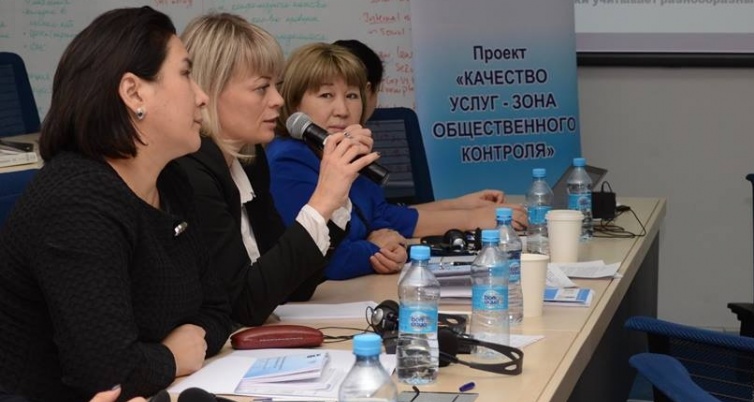Подпишитесь на наши новости:
Success Stories
другие Success Stories
PARENT GROUPS PROMOTE FAMILY ‘VICTORIES’
Peace starts at home
May 11, 2018
Better Business Benefits All
Public transportation is an essential part of the life of a city. In Kazakhstan, buses are by far the most popular form of public transportation; the majority of bus parks are privately owned.
Alexander is an independent entrepreneur with a vested interest in the quality and efficiency of public transportation - his small business includes a number of mini-buses for transporting passengers around the city. Like all entrepreneurs, Alexander works to make his business as efficient as possible. The cost of fuel is one of the most significant variables affecting his bottom line, and he has sought out alternative technologies to reduce his fuel costs and increase his profits. “The idea of installing gas tank equipment on my buses came to me a few years ago,” says Alexander. “I thought it had potential – the cost of fuel would be two times lower.”
When he began to research the process of legalizing the technological upgrades on his vehicles, Alexander hit a roadblock - the administrative police told Alexander that the process of legalizing a refurbished vehicle had not yet been included in the official register of government services and was thus unregulated. Therefore, anyone who wanted to refurbish his vehicle had to go through a complicated registration process, with no guaranteed outcome. This process often discouraged vehicle owners from pursuing refurbishment at all, or drove them to install the technology illegally.
Alexander’s issue is one of dozens of example of the negative impact of ‘hidden’ or unregulated government services on the country’s business development. Representatives of local government agencies are limited in their ability to change existing processes and procedures. “We work according to our instructions, which come from the central government, and aren’t always fully developed from the point of view of application into practice. This refers in particular to new, unprecedented procedures. The mechanism for cooperation between the central government and local agencies has yet to be fully developed,” explained Marina Gagarina, local government staff member.
In an effort to fill this gap between local and national government agencies in the official regulation and improvement of government service delivery, the Fund for Informational Support for Society Development (FIPRO), based in Ust-Kamenogorsk, launched the project “Quality of Services: A Zone for Public Monitoring.” The project was made possible through the joint cooperation of government agencies, business representatives, non-governmental organizations, and independent experts. The result of their efforts is a unique tool designed to simplify and standardize the process of public service financing, regulation, and delivery at all levels of government.
A.K. Mukashev, Director of the Department of Government Services at the Agency for Civil Service and Anti-Corruption Affairs of Kazakhstan, has observed that the project is particularly relevant to the work of his agency. “We need to add the tool developed by the Fund for Informational Support to our armory for our future work improving the quality of government services.” The methods developed during the course of the project with the support of specialists in the sphere of government service delivery have been forwarded to the national government of Kazakhstan for final approval and adoption by government agencies.
In the meantime, Alexander has already benefitted from the project’s work to simplify ‘hidden’ public services. “I received detailed instructions on the procedures for legal refurbishment, and in a couple of weeks received all of the required documents. It is good that government agencies and public organizations are working in this area, as the fewer businessmen spend time on formal procedures, the more they can give to their work.”
The methods developed within the framework of the project have significantly reduced the number of hidden public services in Kazakhstan, and have the potential to bring significant economic benefits. For example, it is estimated that refurbishing one vehicle can save vehicle owners like Alexander an estimated 337,000 KZT annually. With more than 270,000 privately owned trucks and more than 57,000 privately owned buses in Kazakhstan, the standardization of refurbishment processes can contribute to an estimated 84 billion KZT a year in reduced costs for transporting both people and goods.
The project “Quality of Services: A Zone for Public Monitoring”, launched by the Fund for Informational Support for Society Development in 2016, was made possible by the Good Governance Initiative Fund, a project of the US Agency for International Development and the Eurasia Foundation of Central Asia. The Fund awards grants to traditionally underserved CSOs in Kazakhstan and Tajikistan to improve governance practice through improved public service delivery, public policy, and legislation.







